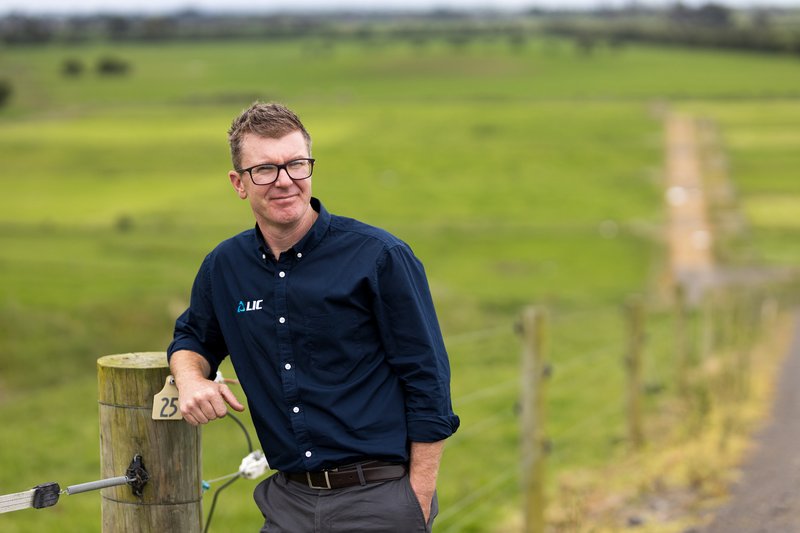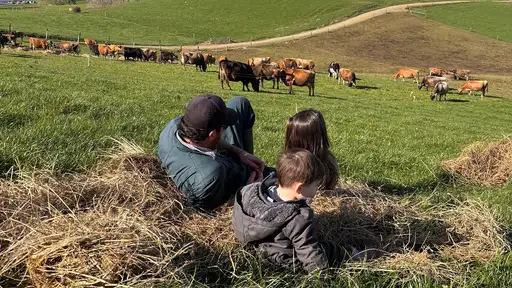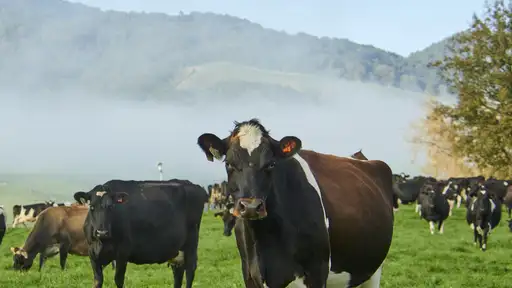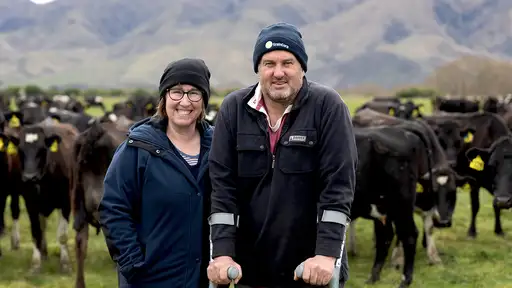Livestock Improvement Corporation (NZX: LIC) has released its year-end financial results for the 2023/24 Financial Year and has declared a 5.84 cents per share dividend.
LIC has continued to invest in innovations for its farmer shareholders, ending the 2023/24 financial year with no debt and a modest profit and dividend for shareholders.
Board Chairman Corrigan Sowman says the 2023/24 financial year has produced some difficult conditions for the co-operative with a reduced milk price environment, a subsequent reduction in activity driving a lower bull valuation, ongoing cost inflation, tax changes, and a semen quality issue that resulted in over $2 million worth of credits paid to farmers.
“Despite some very challenging conditions the Board is pleased to present a positive result to our farmer shareholders, for the seventh successive year,” he says.

Summary of financials*:
- Total Revenue: $267.3 million, down 3.3% from $276.5 million last year
- Net Profit After Tax (NPAT): $7.7 million, down 71.7% from $27.4 million last year
- Underlying Earnings: $13.9 million, down 41.6% from $23.7 million last year
- Dividend: $8.3 million – 5.84 cents per share, representing 60% of Underlying Earnings. This is in addition to the $18.5m Special Dividend paid earlier this year of 13 cents per share.
- Total assets: $358.6 million, down 6.2% from $382.3 million last year
- Strong balance sheet with no debt at year-end
*Refer notes to financial information at end
“Our farmer shareholders are the heart of our co-operative and it has been a particularly difficult year for them with a lower milk price environment alongside continuing high input and debt servicing costs. The impacts of the lower milk price were felt across New Zealand, which is reflected in the 3.3% reduction in revenue.
“LIC is committed to its farmer shareholders and we have continued to invest in research and development, quality improvements in our semen laboratories and technology innovation that will benefit their businesses and the sector’s needs now and into the future.
“Throughout the 2023/24 financial year we have identified cost savings to offset reduced revenue and this has allowed the co-operative to still post a profit and pay out a dividend to our shareholders, which is in addition to the $18.5m Special Dividend paid earlier this year of 13 cents per share.”
Tax legislation enacted in March 2024 removed the ability to depreciate commercial buildings for tax purposes from the 2024/25 income tax year. The application of this tax change created a one-off, non-cash accounting adjustment of approximately $4 million to increase tax expense at year-end, with a corresponding increase in LIC’s deferred tax liability balance.
Research and development investment increased by 14.2% to $21.2 million, representing 7.9% of revenue. Investments include a methane research trial focused on investigating the potential to breed low methane-emitting cows in the future, as well as a heat tolerance research programme which involves breeding high genetic merit dairy cows with improved heat tolerance.
The proportion of fresh semen straws used for breeding replacement daughters on farm from our premium bull teams increased to 79.4% and target turnaround times were achieved across GeneMark®, Johne’s Disease, and milk pregnancy testing. Johne’s Disease testing saw a 10% increase, with 1.18 million animals tested during 2023/24.
LIC’s herd management system MINDA® saw notable improvements during the period, integrating with milk processors such as Fonterra and Open Country as well as integrations with wearable providers and OSPRI. This enables seamless data-sharing and integration across multiple applications used on farm. MINDA® is now used by 90% of dairy farmers in New Zealand.
Outlook
Sowman said, although the coming year still presents a difficult economic environment with ongoing cost pressures on farm, LIC will continue to be firmly guided by its primary focus of delivering on our three commitments to farmer shareholders - operational excellence, faster genetic improvement and software reliability and performance. The co-operative’s performance against these commitments during the 2023/24 year will be reported on at its Annual Meeting in September.
The co-operative expects underlying earnings* for 2024/25 to be in the range of $16-22 million, assuming no significant events, including climate events, or milk price change takes place between now and then.
*Notes to Financial Information
These full-year financial results include the annual non-cash revaluations of LIC’s major biological asset, the bull team, and the outstanding Nil Paid Ordinary Shares receivable, which are both required to reflect “fair value” under accounting standards. Figures have been audited. These numbers should be all read in conjunction with the financial statements.
- Underlying Earnings: This is LIC’s NPAT excluding bull valuation, nil paid share valuation movements and is considered useful to investors as it is the basis on which LIC has historically reported and determined dividends. Non-GAAP financial information does not have a standardised meaning prescribed by GAAP and therefore may not be comparable to similar financial information presented by other entities.
- Nil Paid Ordinary Shares: These were issued to shareholders in 2018 as part of the share simplification process which brought together LIC’s two previous classes of shares into one Ordinary Share. For each co-operative share held, one Fully Paid Ordinary Share and three Nil Paid Ordinary Shares were issued. Nil Paid Ordinary Shares carry the same rights to dividends and voting as Ordinary Shares but cannot be traded on the NZX until they are fully paid up. Dividends paid on remaining Nil Paid Shares are automatically retained by LIC to pay down the remaining unpaid shares. LIC records an estimate of the fair value of the outstanding Nil Paid Ordinary Shares receivable at balance date.
- Bull team valuation: The annual non-cash revaluation of the co-operative’s largest biological asset was $88.9 million. This is down from $97.6 million the previous year, mainly due to reduced forecast activity levels in a lower milk price environment. The valuation is based on an independent model that looks at future revenue streams and costs associated with the current bulls owned, discounted back to current value.
- Dividend: The fully imputed dividend represents 60% of underlying earnings.




